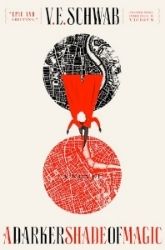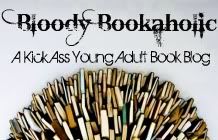Title:
The Girl Who Was on Fire
Author: Various
Series: Nope
Book #: 1
Pages: 194
Reading Level: For Everybody
Book
Rating:
 .7
.7
Published April 5th 2011
Praised by writers from Stephen King to Stephenie Meyer, Suzanne Collins’ New York Times bestselling Hunger Games trilogy is dark, captivating, and deeply thought-provoking. Part straight-up survivalist adventure, part rich allegory, and part political thriller, the series has become a new YA favorite.
The Girl Who Was On Fire offers even more to think about for teen readers already engrossed by the Hunger Games. From the trilogy's darker themes of violence and social control to reality television, fashion, and weaponry, the collection's exploration of the Hunger Games by other YA writers reveals exactly how rich, and how perilous, protagonist Katniss’ world really is.
The Girl Who Was On Fire covers all three books in the Hunger Games trilogy.
Taschima's POV:
I reviewed this book back on April 2011, when it was first brought into my attention. Recently though I received the new movie edition which includes 3 new essays that pretty much rocked my world so I naturally needed to add something more. Here is my original review, along with the new paragraphs on the new content.
April, 2011:
These kinds of books are awesome, and specifically this one is amazing! The essays are so good! There are 13 essays (for 13 districts?) in total, some have to do with fashion, psychology, PSTD among the winners of The Hunger Games, Team Katniss, and so much more. Theres something for everybody.
When the people at Smart Pop contacted me about reviewing this one I was so psyched!!! Any fan of The Hunger Games would be. I first learnt about Smart Pop when I bought their essays on A New Dawn, I was soo into Twilight and this book was a life saver. I read it before I got Breaking Dawn because it wasn't out yet. Anyways this book is as good as A New Dawn was, if not better (let me think about it... definitely better). The authors talk about various parts of The Hunger Games with such insight that it make you think "holly crap how did I not see it? Why wasn't this clear to me from the get go?"
After I reads this book I immediately picked up The Hunger Games and started re reading it. Cinna is by far one of my favourite characters in the book, before reading The Girl Who Was on Fire I didn't paid much attention to him, but after reading the essay on fashion I got to say that he is one of the bravest most creative characters ever. Also after re reading The Hunger Games (and reading an essay that talked about the love triangle thing in The Girl Who Was on Fire) is hard to see where anyone got the idea that Katniss could ever end up with Gale, Peeta is such a sweet heart and clearly the right choice. Oh and also, I'm Team Katniss, she is the best. You will understand if you read The Girl Who Was on Fire, it really is an eye opener. Not to say that that all the essays will appeal to just everybody, there was one heavily on the science part that didn't interest me at all, but for the most part is so good.
January 2012:
All that I have said above? Completely true. Nonetheless, I have to add a bit more due to the new essays that the Movie Edition brings.
The essays are written by Diana Peterfreud (author of the killer unicorn series
Rampant), Brent Hartinger (author of
Geography Club) and Jackson Pearce (author of
Sisters Red,
Sweetly and
Purity).
The one written by Diana is about Game Theory, and how it applies to The Hunger Games. It is very informative and interesting that is for sure. Maybe if my teachers taught me about the Game Theory with Hunger Games examples I would have learnt a bit more about it, or been more interested.
"Game Theory is not about games. It's about politics and psychology, war and strategy. For Katniss Everdeen, it is life and death, and in the end, everyone in Panem comes to learn that the only way to truly win the game is not to play at all."
Brent Hartinger's essay is basically on the simple question: "does the Mockingjay book suck or not?". It is his personal belief that the book wasn't as good as the others, it is my personal belief that I loved it. So it was interesting reading the other side of the coin. Brent does a very fine job indeed. He not only puts forward why he beliefs the book sucked and where he thinks things could have been done better, but he also speaks up for the people who loved the book and gives various reasons on why he would understand why the book would be loved (something about cynicism in his essay struck a cord with me).
"...there are two sides to the question of whether or not the book sucks. But there's also a third point of view to be considered: that there is some truth to both arguments. That Mockingjay might be flawed in some respects, but it's a bold and challenging work of fiction in others, specially the ending."
Last but not least is Jackson Pearce's essay. Her essay has to do with Gale, surprisingly. It has to do with how Gale is the knight, or cowboy if you prefer the men with boots and hats, of the series. He is willing to do whatever is necessary for the greater good, even if it interferes with what he wants the most as an individual (in this case this would be Katniss' love). To some degree I would agree with Jackson. Gale was never going to end with Katniss, we all knew that deep inside. Why? Well, you will have to read the essay to figure that out.
"All this time, Gale has been fighting not just for Katniss' heart, but for her safety, to create a world in which she and everyone else can be happy. And he wins -only he can't live in that world with her, because she can't forgive him for what he has done, things she has deemed to be evil."
This book is as close to the Hunger Games inner workings as you are going to get. It's like getting together with your friends and discussing the Hunger Games in great detail- only your friends in this case are inside the pages. You will enjoy every single second of the conversation, and after it is finished you will ask for seconds. That's when you get up, go to your best friend, and put this book in their hands. Only then will they be able to understand this love we have deep inside for The Hunger Games and why we keep trying to keep the world alive even though the series as long ended.
Long live The Hunger Games.

 -♥-
-♥-
 -♥-
-♥-
 -♥-
-♥-
 -♥-
-♥-
 -♥-
-♥-
 -♥-
-♥-
 -♥-
-♥-
 -•
-•




























 .7
.7

+by+Lauren+Oliver.jpg)
















































